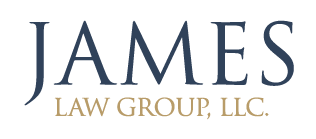The Fifth Amendment mandates that charges for all capital and “infamous” crimes be brought by an indictment returned by a grand jury. The Amendment has been interpreted to require an indictment to charge all federal felonies, including federal drug charges unless a defendant waives his or her right to be indicted. The Supreme Court has concluded, however, that states are not bound by this part of the Fifth Amendment. Although legal counsel for the person at the center of the proceedings and for witnesses testifying in front of the grand jury cannot be in the grand jury room, an experienced criminal law attorney can provide advice outside of the presence of the jury and explain the grand jury process, taking some of the mystery and terror out of this procedure.
“Regular” and “Special” Grand Juries
Federal grand juries usually serve two functions. The first is the indictment process, which involves deciding if someone should be charged with a crime. This purpose is served by a regular grand jury. The second purpose is to investigate criminal activity. Special grand juries serving this purpose may be called upon to explore whether there is possible criminal activity, like an ongoing criminal enterprise. Drug charges are more likely to be the subject of a regular grand jury, but in the case of a suspected criminal enterprise involving drugs or another complicated and more serious crime, like a racketeering violation, a special grand jury may be convened.
The purpose of a regular grand jury proceeding is to determine if there is enough evidence to charge someone with a crime. The proceeding does not have the adversarial “give and take” of a trial to determine guilt. Only prosecutors may introduce evidence in a grand jury proceeding. In addition, grand juries can gather evidence independent of the prosecutor through the use of subpoenas. They can also ask questions of witnesses that the prosecutor did not ask. The person who might be charged, however, does not have the right to even attend the proceeding or to present evidence.
A Cloak of Secrecy
Grand jury proceedings are secret. Although some courts record grand jury proceedings, the proceedings and their transcripts are not open to the public or the press. Grand jurors and witnesses are sworn not to reveal what happened in the proceedings. Unless a judge lifts this secrecy requirement, the oath of secrecy continues forever. In many instances, though, a judge may lift the requirement after an indictment has been charged.
A witness in a grand jury proceeding is not entitled to have his or her attorney present in the grand jury room while testifying. However, the attorney may wait outside the room and the witness may ask to leave the grand jury room to consult with his or her attorney. Although witnesses before federal grand juries do not have the right to an attorney, many courts will appoint an attorney for a witness who cannot afford one.
The Composition of a Grand Jury
There are usually between sixteen and twenty-three jurors on a grand jury. A grand jury can only conduct official activities when it has a quorum, which usually consists of at least sixteen people. Sometimes a court may appoint one or more alternate grand jurors to replace a grand juror who is excused during the term for illness or other reasons. If alternates have not been appointed, the court can replace a grand juror merely by appointing another individual to serve in that role.
Grand juries must have a foreperson and a deputy foreperson. The court supervising the grand jury usually appoints the foreperson and deputy foreperson based on input from the jurors. The foreperson administers oaths to witnesses and presides over the grand jury’s sessions. The deputy foreperson performs the foreperson’s duties when the foreperson is unavailable.
Grand juries have a lot of power. They can determine whether enough evidence exists to bring drug charges against one or more individuals, but they can also refuse to indict someone if they do not believe there is sufficient evidence to charge him or her with a crime. Although defense lawyers are not present in the grand jury room, they still serve the essential role of advising both witnesses and those persons whose actions are the subject of the grand jury proceedings. Accordingly, the counsel of the most knowledgeable and experienced criminal defense attorneys is an essential part of the grand jury process.
